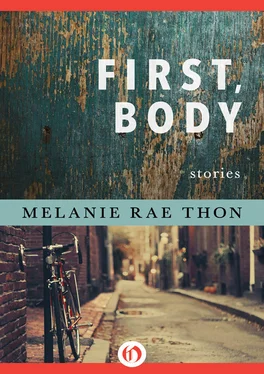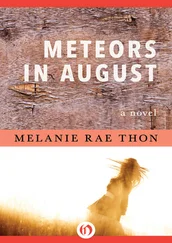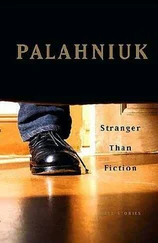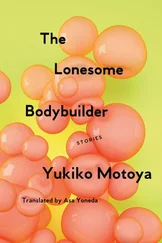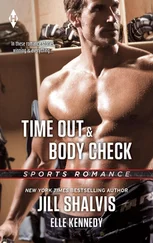Melanie Rae Thon
First, Body: Stories
FOR THE CHILDREN:
Hayley, Christopher, Kelsey, Bradley, Michael, and Melinda
If suddenly you do not exist,
If suddenly you are not living,
I shall go on living.
I do not dare,
I do not dare to write it,
if you die.
I shall go on living.
— Joan Brady, Theory of War
TWO NURSES with scissors could make a man naked in eleven seconds. Sid Elliott had been working Emergency eight months and it amazed him every time. Slicing through denim and leather, they peeled men open faster than Sid’s father flayed rabbits.
Roxanne said it would take her longer than eleven seconds to make him naked. “But not that much longer.” It was Sunday. They’d met in the park on Tuesday, and she hadn’t left Sid’s place since Friday night. She was skinny, very dark-skinned. She had fifteen teeth of her own and two bridges to fill the spaces. “Rotted out on smack and sugar. But I don’t do that shit anymore.” It was one of the first things she told him. He looked at her arms. She had scars, hard places where the skin was raised. He traced her veins with his fingertips, feeling for bruises. She was never pretty. She said this too. “So don’t go thinking you missed out on something.”
He took her home that night, to the loft in the warehouse overlooking the canal, one room with a high ceiling, a mattress on the floor beneath the window, a toilet behind a screen, one huge chair, one sink, a hot plate with two burners, and a miniature refrigerator for the beer he couldn’t drink anymore.
“It’s perfect,” she said.
Now they’d known each other six days. She said, “What do you see in me?”
“Two arms, two ears. Someone who doesn’t leave the room when I eat chicken.”
“Nowhere to go,” she said.
“You know what I mean.”
He told her about the last boy on the table in Emergency. He’d fallen thirty feet. When he woke, numb from the waist, he said, Are those my legs ? She lay down beside him, and he felt the stringy ligaments of her thighs, the rippled bone of her sternum; he touched her whole body the way he’d touched her veins that night in the park, by the water.
He sat at his mother’s kitchen table. “What is it you do?” she said.
“I clean up.”
“Like a janitor?”
Up to our booties in blood all night , Dr. Enos said.
“Something like that.”
She didn’t want to know, not exactly, not any more than she’d wanted to know what his father was going to do with the rabbits.
She nodded. “Well, it’s respectable work.”
She meant she could tell her friends Sid had a hospital job.
He waited.
“Your father would be proud.”
He remembered a man slipping rabbits out of their fur coats. His father had been laid off a month before he thought of this.
Tonight his mother had made meatloaf, which was safe — so long as he remembered to take small bites and chew slowly. Even so, she couldn’t help watching, and he kept covering his mouth with his napkin. Finally he couldn’t chew at all and had to wash each bite down with milk. When she asked, “Are you happy there?” he wanted to tell her about the men with holes in their skulls, wanted to bring them, trembling, into this room. Some had been wounded three or four times. They had beards, broken teeth, scraped heads. The nurses made jokes about burning their clothes.
But the wounds weren’t bullet holes. Before the scanners, every drunk who hit the pavement got his head drilled. “A precautionary measure,” Dr. Enos explained. “In case of hemorrhage.”
“Did the patient have a choice?”
“Unconscious men don’t make choices.”
Sid wanted to tell his mother that. Unconscious men don’t make choices . He wanted her to understand the rules of Emergency: first, body, then brain — stop the blood, get the heart beating. No fine tuning. Don’t worry about a man’s head till his guts are back in his belly.
Dr. Enos made bets with the nurses on Saturday nights. By stars and fair weather they guessed how many motorcyclists would run out of luck cruising from Seattle to Marysville without their helmets, how many times the choppers would land on the roof of the hospital, how many men would be stripped and pumped but not saved.
Enos collected the pot week after week. “If you’ve bet on five and only have three by midnight, do you wish for accidents?” Dr. Roseland asked. Roseland never played. She was beyond it, a grown woman. She had two children and was pregnant with the third.
“Do you?” Enos said.
“Do I what?”
Enos stared at Roseland’s swollen belly. “Wish for accidents,” he said.
Skulls crushed, hearts beating, the ones lifted from the roads arrived all night. Enos moved stiffly, like a man just out of the saddle. He had watery eyes — bloodshot, blue. Sid thought he was into the pharmaceuticals. But when he had a body on the table, Enos was absolutely focused.
Sid wanted to describe the ones who flew from their motorcycles and fell to earth, who offered themselves this way. Like Jesus . His mother wouldn’t let him say that. With such grace . He wished he could make her see how beautiful it was, how ordinary, the men who didn’t live, whose parts were packed in plastic picnic coolers and rushed back to the choppers on the roof, whose organs and eyes were delivered to Portland or Spokane. He was stunned by it, the miracle of hearts in ice, corneas in milk. These exchanges became the sacrament, transubstantiated in the bodies of startled men and weary children. Sometimes the innocent died and the faithless lived. Sometimes the blind began to see. Enos said, “We save bodies, not souls.”
Sid tasted every part of Roxanne’s body: sweet, fleshy lobe of the ear, sinewy neck, sour pit of the arm, scarred hollow of the elbow. He sucked each finger, licked her salty palm. He could have spent weeks kissing her, hours with his tongue inside her. Sometimes he forgot to breathe and came up gasping. She said, “Aren’t you afraid of me?”
And he said, “You think you can kill me?”
“Yes,” she said, “anybody can.”
She had narrow hips, a flat chest. He weighed more than twice what she did. He was too big for himself, always — born too big, grown too fast. Too big to cry. Too big to spill his milk. At four he looked six; at six, ten. Clumsy, big-footed ten. Slow, stupid ten. Like living with a bear , his mother said, something broken every day, her precious blown-glass ballerina crumbling in his hand, though he held her so gently, lifting her to the window to let the light pass through her. He had thick wrists, enormous thumbs. Even his eyebrows were bushy. My monster , Roxanne said the second night, who made you this way ?
“How would you kill me?” he said. He put one heavy leg over her skinny legs, pinning her to the bed.
“You know, with my body.”
“Yes, but how?”
“You know what I’m saying.”
“I want you to explain.”
She didn’t. He held his hand over her belly, not quite touching, the thinnest veil of air between them. “I can’t think when you do that,” she said.
“I haven’t laid a finger on you.”
“But you will,” she said.
He’d been sober twenty-seven days when she found him. Now it was forty-two. Not by choice. He’d had a sudden intolerance for alcohol. Two shots and he was on the floor, puking his guts out. He suspected Enos had slipped him some Antabuse and had a vague memory: his coffee at the edge of the counter, Enos drifting past it. Did he linger? Did he know whose it was? But it kept happening. Sid tried whiskey instead of rum, vodka instead of whiskey. After the third experiment he talked to Roseland. “Count your blessings,” she said. “Maybe you’ll have a liver when you’re sixty.” She looked at him in her serious, sad way, felt his neck with her tiny hands, thumped his back and chest, shined her flashlight into his eyes. When he was sitting down, she was his height. He wanted to lay his broad hand on her bulging stomach.
Читать дальше
